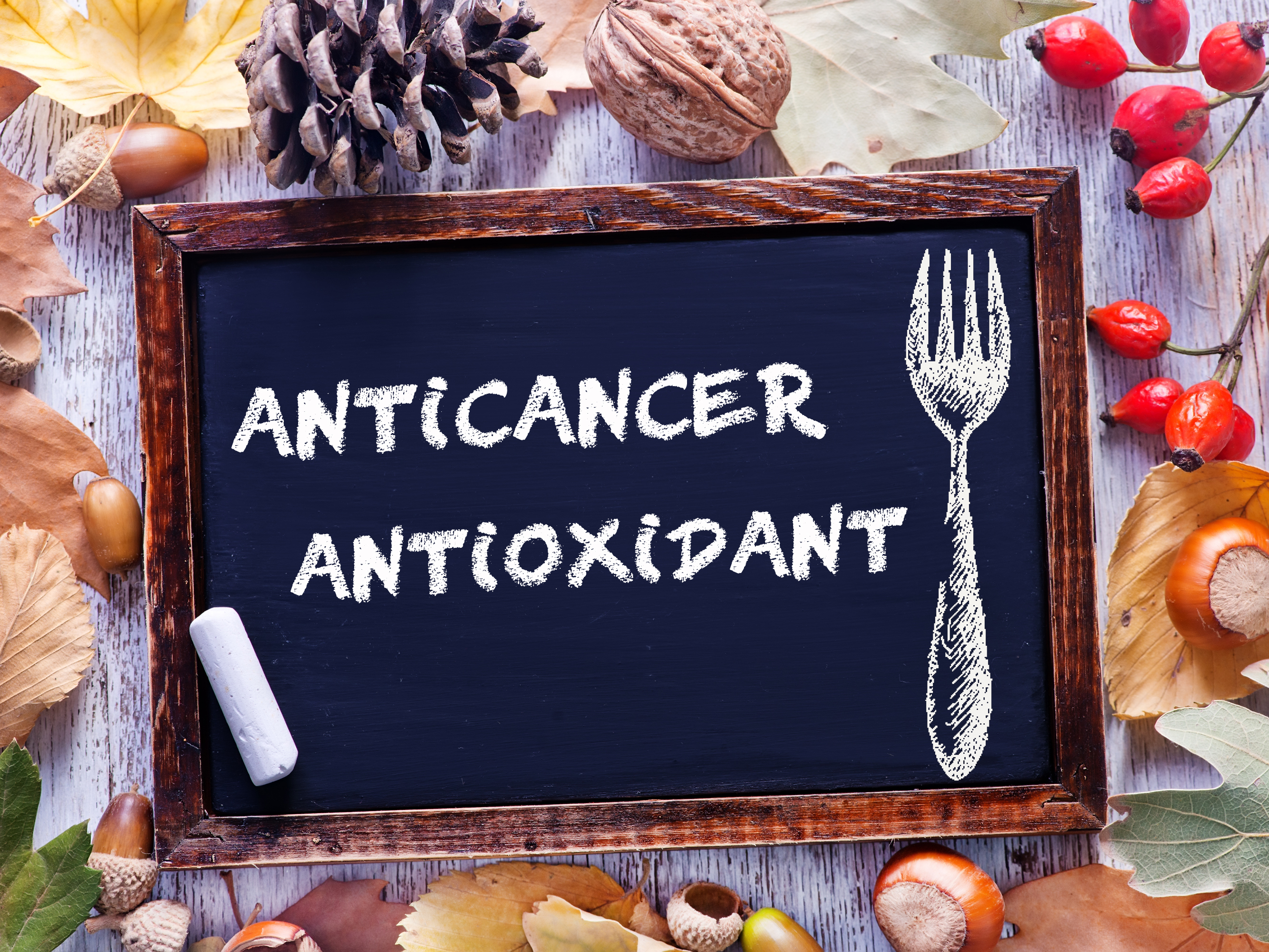Get Easy Health Digest™ in your inbox and don’t miss a thing when you subscribe today. Plus, get the free bonus report, Mother Nature’s Tips, Tricks and Remedies for Cholesterol, Blood Pressure & Blood Sugar as my way of saying welcome to the community!
Is your anticancer antioxidant all it’s chalked-up to be?

Antioxidants and cancer and two words we commonly hear paired together.
That’s because when cancer develops there is a direct imbalance between free radicals and antioxidants in the body.
When your antioxidant defenses are low, your body can’t repair the cellular damage caused by free radicals. And if not corrected through external means (an increase in antioxidants), normal healthy cells can switch to cancer cells.
Of course, you probably already know this and could be taking one (or more) antioxidant supplements to help combat these effects.
But while vitamin C has several proven benefits for cancer and intravenous glutathione and lipoic acid may be effective alternative cancer treatments, the jury is still out on the benefits of many other proclaimed antioxidants…
What’s in your antioxidant?
A review of nine clinical trials found that most antioxidant supplementation, over the long term, does very little — if anything — to decrease your risk of cancer at all.
This includes:
- Beta-carotene
- Selenium
- Vitamin E
- Vitamin A
- Multi vitamins
Does that mean you just forget about supplementing antioxidants? Not at all…
But you may get more bang from the antioxidant power found in certain vegetables.
The reason for this is vegetables contain highly bioavailable nutrients that your body can readily absorb. And what we know is that the role of food synergy for health and cancer prevention is the critical factor.
Synergy refers to the collective effect of the vitamins, minerals, and compounds that your overall diet provides. And what’s generally agreed upon is that the vitamins and minerals your body gains from eating natural whole food sources provide more benefits than many supplements do.
When it comes to measuring antioxidants in foods, you may have heard people refer to ORAC, which stands for “Oxygen Radical Absorbance Capacity.” However, some researchers believe measuring “cellular antioxidant activity” (CAA) provides a more biological representation than ORAC. That’s because CAA tests or measures antioxidant activity as it occurs within cells themselves.
While it’s true that all types of vegetables will help increase your antioxidant status, researchers set out to perform some experiments to explore the CAA of a group of vegetables. They found that, in particular, five vegetables really hit it home…
Top 5 vegetables with potent CAA measurements included:
- Beets
- Red pepper
- Eggplant
- Brussels sprouts
- Broccoli
These have the power of 40 CAA, which doesn’t mean much on its own. But this makes sense when compared to the next list, which drops to a power of 21 CAA and below, in descending order.
- Cabbage
- Mushroom
- Asparagus
- Green pepper
- Cauliflower
- Spinach
- Carrot
- Chili pepper
- Sweet potato
- Radish
- Yellow onion
- Lettuce
- Potato
- Sweet corn
- Squash
- Celery
- Green pea
- Green bean
- Cucumber
Without a doubt increasing your intake of antioxidants can help prevent cancer, extinguish free radicals, regulate your body’s cell cycle, promote enzyme activity to increase your body’s detoxification, and promote better immunity and metabolism — so please do consume more antioxidants.
Just make sure you’re getting those antioxidants from sources that will actually make a difference to your health.
Editor’s note: As you’ve just read, potent natural cancer fighters exist in nature, but if you wait for them to go from lab to pharmacy it could be too late. Dr. Michael Cutler lists more natural ways to avoid and beat cancer, including the best minerals, herbs, supplements, foods and proven therapies allowed in other countries — but denied to you by American mainstream medicine — all in his comprehensive cancer guide, Surviving Cancer! Click here for a preview!
Sources:
- Antioxidants and cancer prevention — Cancergov. (2017). National Cancer Institute. Retrieved 14 August, 2017.
- Antioxidants Accelerate the Growth and Invasiveness of Tumors in Mice — Cancergov. (2017). National Cancer Institute. Retrieved 14 August, 2017.
- Roleira FMF, et al. Plant derived and dietary phenolic antioxidants: Anticancer properties. — Food Chemistry. 2015;183:235-258.
- Song W, et al. Cellular Antioxidant Activity of Common Vegetables. — J. Agric. Food Chem. 2010;58:6621-6629.












